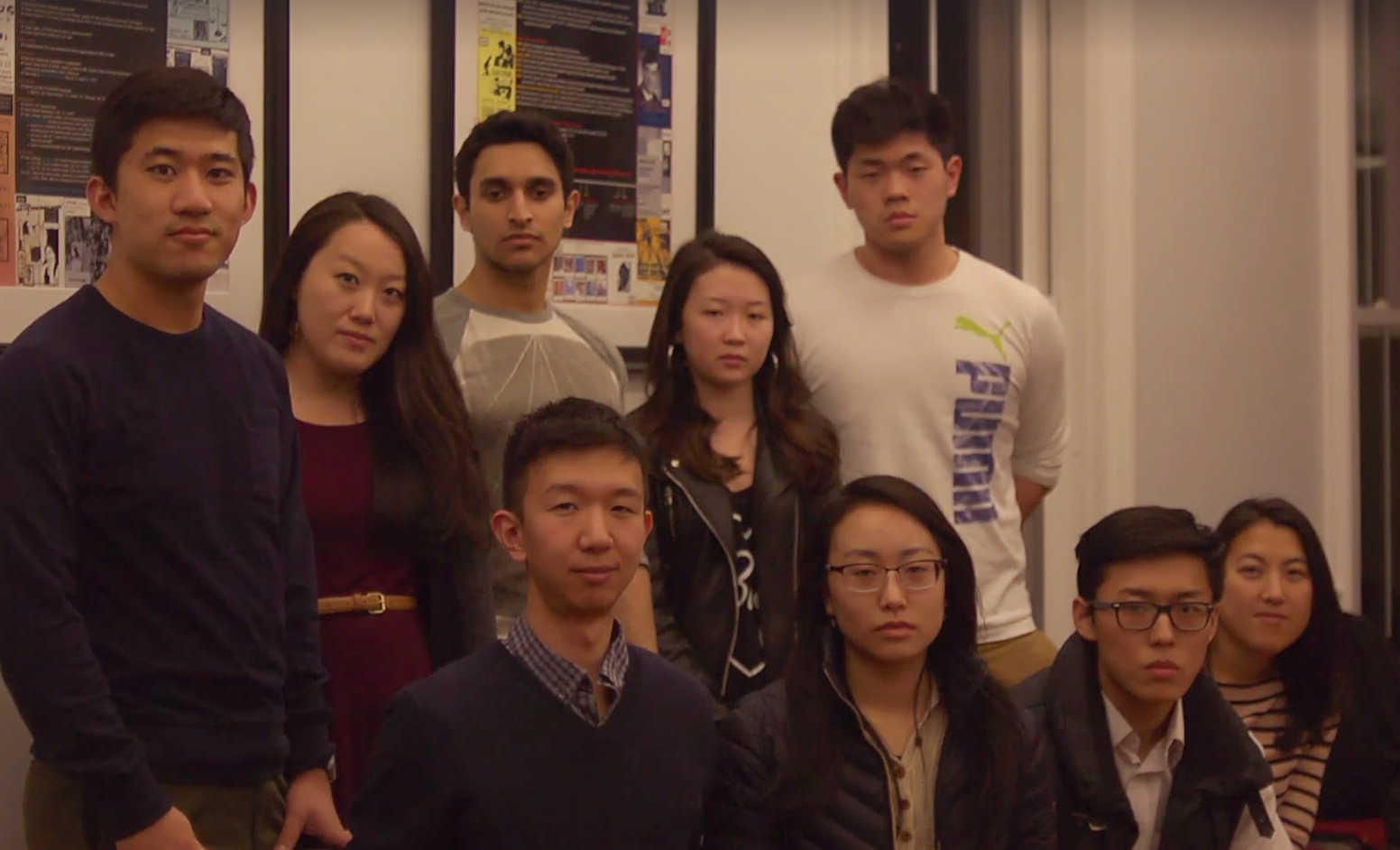
Courtesy of USAY
Last Thursday, the student organization Unite Against Sexual Assault Yale released a video titled “A Call to Allies,” designed to encourage students to take a stand against campus sexual violence.
USAY timed the video’s release to coincide with the Fall Week of Action of the “It’s On Us” campaign, an initiative launched by the White House in 2014 to spark conversation about sexual assault on college campuses. “A Call to Allies,” which was first posted to USAY’s Facebook page, has been viewed over 5,000 times since its release and was highlighted in an Oct. 13 Washington Post article.
In the video, student actors recite the lines of a pledge to support survivors of sexual assault and to act as responsible bystanders. Students in the video included representatives for multiple campus organizations, such as fraternities, athletic teams, musical ensembles and cultural groups.
According to USAY Co-Founder and Co-Director Helen Price ’18, the subject matter of the video was timely, especially in light of a video that recently surfaced of Republican presidential nominee Donald Trump making lewd comments about women.
“We thought that in this particular moment, the message would resonate with a lot of people and be effective in showing and proving [sexual assault] is an issue we all need to tackle,” Price said. “What Trump would call ‘locker-room talk’ is unacceptable and needs to be combated from all angles.”
Brainstorming for the video began shortly after USAY was founded last fall, according to USAY executive board member Sonia Blue ’18. Filming commenced in the spring semester, with the finishing touches being completed last month. Blue and Jack Williamson ’18, another member of the USAY executive board, made the video’s casting decisions.
Blue said USAY wanted the video to demonstrate active participation in the pledge from the student body and, therefore, tried to be as inclusive as possible in the casting process.
“There are certain types of people you think are part of the problem, but we wanted to make them part of the solution,” Blue said.
In addition to featuring students who represent diverse backgrounds and organizations on campus, the video also incorporated scenes with different settings, including a party, a music rehearsal and an athletic facility.
These decisions were intentional, said Anthony D’Ambrosio ’18, the other USAY co-founder and co-director.
“We want people to realize, no areas or spaces are truly safe from sexual misconduct or sexual assault,” D’Ambrosio said. “People should be aware that unfortunate things happen in all spaces, all types of environments, be they locker rooms or classrooms or parties, so we want to be vigilant at all times.”
Diksha Brahmbhatt ’18, who is not part of USAY, said she thought the video was a good way to reach populations on campus “that might need to hear those messages most desperately.” However, she added that she hopes future campus discussions can focus more on the role of alcohol in sexual assault, a concern that she said needs to be addressed more directly than it currently is.
Cast members felt the video served several different purposes. Stephan Riemekasten ’18, a member of the varsity heavyweight crew team who participated in the video, said he hoped “A Call to Allies” could empower people to speak up in situations where they know something is not right. The video also demonstrated that the fight against sexual assault encompasses more than just women, said Serena Tharakan ’18, another actor in the video.
“With everything that’s been going on at campus, it shows we’re trying to come together as a community,” said Chase Ammon ’18, a member of the Yale Navy ROTC Undergraduate Association and part of the video’s cast. “I liked how the whole thing was about giving people agency, letting people speak for themselves and take responsibility and step up.”
Publicizing “A Call to Allies” on social media ties in with USAY’s general approach to increasing awareness of issues surrounding sexual assault, D’Ambrosio said. Since its founding, USAY has launched a number of initiatives, including holding a “chalk-in” on Cross Campus last March to support survivors of sexual assault and hosting the inaugural Fearless Conference last April.
This year, USAY has further expanded by opening applications for general membership and forming committees dedicated to different areas of focus, Price said. According to D’Ambrosio, these include a policy and an outreach committee. The organization also hopes to bolster its community education program by continuing its partnership with Greek organizations, she added. Additionally, the USAY bystander intervention workshop curriculum that was used by all fraternities last spring has now expanded to other universities such as Columbia, University of New Haven and University of Connecticut, Price said.
Seven USAY and cast members interviewed agreed that although there are still steps that can be taken to improve the sexual climate at Yale, a significant amount of progress has been made in recent years to promote healthy discussions.
“I think that Yale is definitely more open to talking about the topic of sexual assault,” said Max Cook ’17, a member of the USAY executive board and varsity soccer player. “Student groups, from teams to fraternities to societies, are showing great enthusiasm to continue to engage as stakeholders and work collaboratively to make Yale better.”







